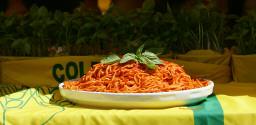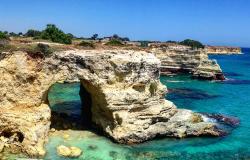Italians may soon be able to enjoy a pasta dish that has been illegal for a decade thanks to a new experiment to cultivate an endangered mollusc off the coast of Puglia.
Linguini with date mussels has been off the menu since 1998, when the government banned the capture, consumption and sale of the mussels because of the destruction being wreaked on the seabed during their collection.
Unlike the more common Mediterranean blue mussel which anchors itself to rocks, date mussels bore down into rocks and coral and live inside them - meaning that 33 square centimetres of seabed has to be blasted open in order to make a single portion of linguini with date mussels.
Now a fishing cooperative in the Gulf of Manfredonia has created a mussel-friendly habitat for the molluscs by pouring a paste of cement, ash and carbon into the sea to form an artificial reef from which they can be harvested without harming the environment.
Italy has two types of native date mussel - the Pholas dactylus, which takes between 15 and 20 years to grow to five centimetres long, and the fast-developing white mussel, which takes only 36 months to grow to an edible size.
A batch of white mussels planted on the reef two years ago are now ready for the kitchen, according to the cooperative, which hopes to increase the scale of the project and strike at the heart of the date mussel black market.
National animal right's group LAV says that between 80 and 180 tonnes of date mussels are still collected each year, equivalent to the destruction of between four and nine hectares of seabed.
Date mussels, also known as 'sea dates' are traditionally eaten raw, added to pasta and risotto at the last moment so as not to ruin their fresh mollusc flavour.







